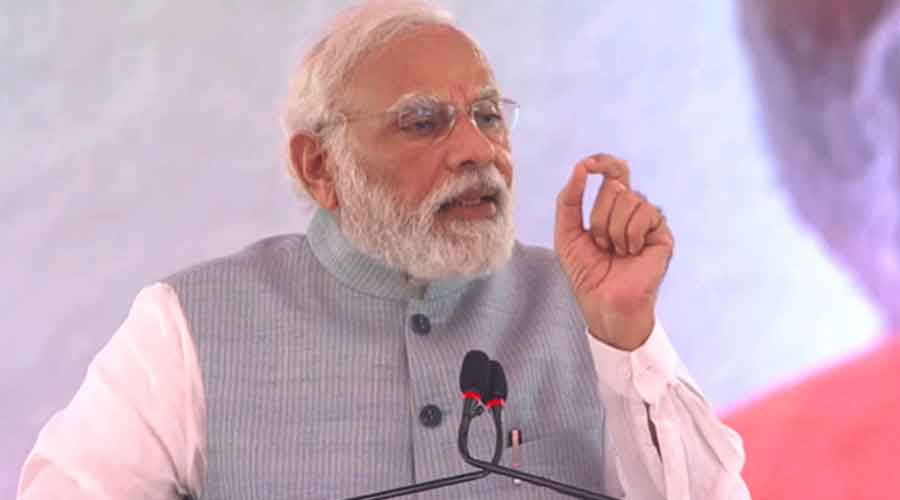There are no free lunches — except in politics. Speaking after the inauguration of a road project in Uttar Pradesh, the prime minister decided to rake up the prevailing quid pro quo relationship between politicians and voters on the matter of freebies with an eye on his political opponents. Narendra Modi asked citizens, especially the youth, to be wary of those who seek to buy people — their votes — in exchange for offers of freebies. The truth of the matter is that modern politics, be it in India or abroad, is largely built on these perks. The malaise afflicts every single political party; perhaps the Bharatiya Janata Party the most. The prime minister’s punishing schedule may have led him to forget that Uttar Pradesh — the venue of Mr Modi’s speech — had been won after the BJP extended the Pradhan Mantri Gareeb Kalyan Anna Yojana so that the poor, struggling without employment and amenities as a result of the myopic economic policies of the regime, could make ends meet during the pandemic. From pledging novel goodies, such as free rations to claims of free Covid doses, to old pledges like free electricity or, these days, electronic gadgets, election manifestos of the BJP as well as its competitors resemble a sorry advertisement for welfarism. This is because a perverse template of populism has transformed the political responsibility of securing people’s rights into a transaction to secure electoral fidelity. The voter and the leader remain obtuse to the immorality of this transaction. Ironically, the voters see the perk as an entitlement while refusing to punish the politician for the failure to provide what is rightfully theirs. Mr Modi may have alleged that the rewad is — freebies — are a bitter fruit. But he is complicit in its harvest.
The moral erosion of the compact between people and politician is not the only issue here. Sops encourage financial profligacy among governments. There should be deliberations to help the electorate identify and separate welfare measures— a constitutional entitlement — from populist doles that are distributed by politicians to deflect collective attention from their failure to do the minimum for the people. This, in turn, could strengthen demands of accountability from an elected leadership. Greater commitment to welfare— the consequence of strident accountability— could then lead to the betterment of the lives of the people by the government. That, Mr Modi and his peers should remember, is the kernel of democracy.











